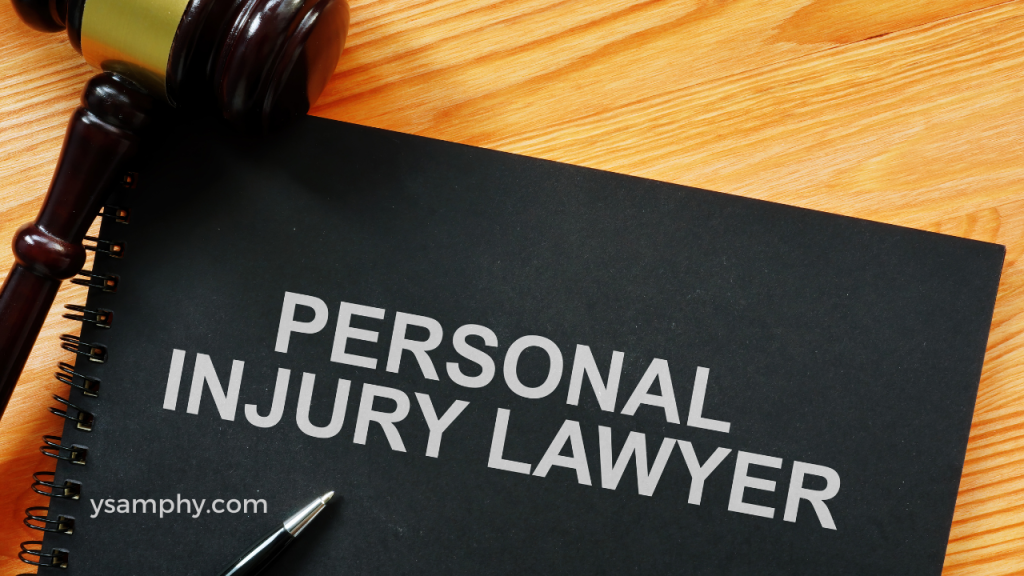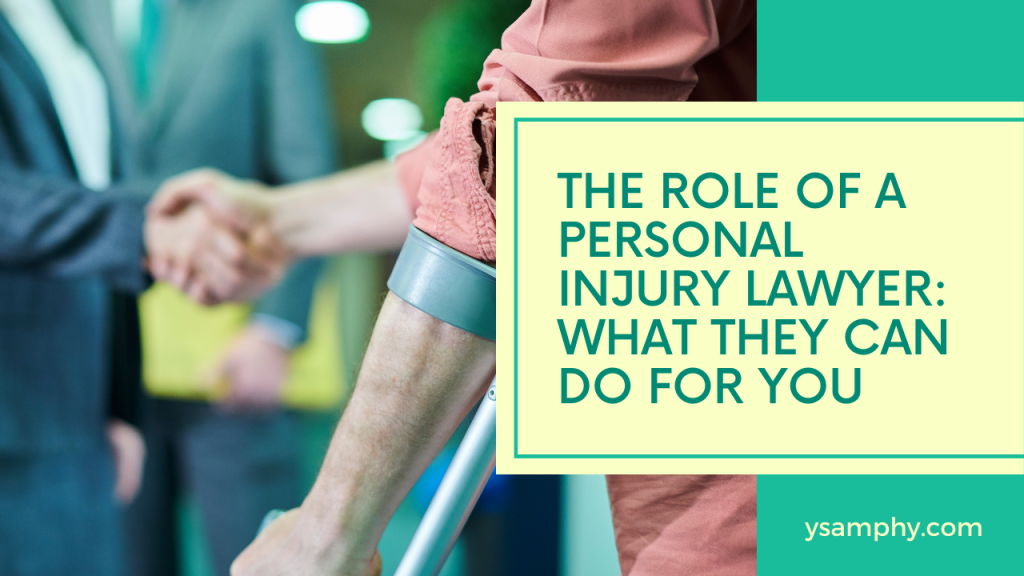Accidents and injuries are unfortunate, often unexpected, events that can dramatically alter the course of a person’s life. Whether it’s a car accident, a slip and fall, medical malpractice, or any other incident resulting in injury, the aftermath can be overwhelming. Medical bills, lost wages, pain and suffering, and the complex legal system can make recovery seem insurmountable. This is where a personal injury lawyer becomes invaluable. Understanding the role of a personal injury lawyer and what they can do for you can be crucial in navigating this challenging period.
Understanding Personal Injury Law
Personal injury law, also known as tort law, is designed to protect individuals who have been harmed due to the negligence or wrongful acts of others. You can click here and learn more about the primary goal, which is to provide financial compensation to the injured party, ensuring they are “made whole” after the incident. This area of law covers a wide range of cases, including but not limited to:
- Motor vehicle accidents
- Medical malpractice
- Workplace accidents
- Slip and fall incidents
- Defective products
- Wrongful death
Given the broad scope and complexity of personal injury law, having an experienced lawyer to guide you through the process is crucial.

What a Personal Injury Lawyer Can Do for You
With this in mind, now let’s discover what a personal injury lawyer can do for their clients.
1. Provide Expert Legal Advice
One of the most significant benefits of hiring a personal injury lawyer is gaining access to expert legal advice. Personal injury attorneys have in-depth knowledge of the law, understanding the nuances that can make or break a case. They can help you understand your rights, the merits of your case, and the legal avenues available to you.
2. Thoroughly Investigate Your Case
A personal injury lawyer will conduct a comprehensive investigation into your case. This includes gathering evidence, such as police reports, medical records, witness statements, and, if necessary, consulting with experts. By building a robust case, your lawyer can establish the facts and demonstrate how the negligence of the other party caused your injuries.
3. Handle Insurance Companies
Dealing with insurance companies can be one of the most frustrating aspects of a personal injury case. Insurers often aim to minimize payouts to protect their bottom line. A personal injury lawyer knows the tactics used by insurance companies and can negotiate on your behalf to ensure you receive fair compensation. They can handle all communications with the insurer, preventing you from making statements that could potentially harm your case.
4. Assess the Value of Your Claim
Determining the value of a personal injury claim is complex. It involves calculating not only current medical expenses and lost wages but also future costs, such as ongoing medical treatment and loss of earning capacity. Additionally, non-economic damages like pain and suffering, emotional distress, and loss of enjoyment of life must be considered. A seasoned personal injury lawyer has the experience to accurately assess the full extent of your damages, ensuring you pursue the maximum compensation you deserve.
5. Negotiate Settlements
Many personal injury cases are resolved through settlements rather than going to trial. A personal injury lawyer is skilled in negotiating with opposing parties and their insurance companies to reach a fair settlement. They will advocate for your best interests, aiming to secure an agreement that adequately compensates you for your injuries and losses.
6. Prepare and File Necessary Legal Documents
The legal process involves a significant amount of paperwork and strict deadlines. A personal injury lawyer will prepare and file all necessary documents, ensuring compliance with legal requirements. This includes drafting pleadings, motions, and other court documents. Timely and accurate filing is essential to avoid delays and potential dismissal of your case.
7. Represent You in Court
If a fair settlement cannot be reached, your case may proceed to trial. In such instances, having a personal injury lawyer who is prepared to represent you in court is crucial. They will present your case, argue on your behalf, and cross-examine witnesses. Their expertise in courtroom procedures and strategies can significantly enhance your chances of a favorable verdict.
8. Provide Peace of Mind
Dealing with the aftermath of an injury can be incredibly stressful. Engaging a personal injury lawyer allows you to focus on your recovery while knowing that a professional is handling the legal aspects of your case. This peace of mind can be invaluable during a difficult time.

How to Choose the Right Personal Injury Lawyer
Choosing the right personal injury lawyer is a critical decision that can impact the outcome of your case. Here are some factors to consider:
Experience and Specialization
Look for a lawyer with extensive experience in personal injury law and a track record of successful case outcomes. Specialization in personal injury cases ensures they have the expertise needed to handle the specific details of your case.
Reputation and Reviews
Research the lawyer’s reputation. Read client reviews and testimonials to gauge their reliability and effectiveness. A lawyer with a solid reputation is likely to provide high-quality representation.
Communication and Availability
Effective communication is essential. Choose a responsive lawyer, who listens to your concerns, and keeps you informed about the progress of your case. Accessibility and availability for consultations and updates are crucial.
Fee Structure
Understand the lawyer’s fee structure before engaging their services. Many personal injury lawyers work on a contingency fee basis, meaning they only get paid if you win your case. Ensure you are comfortable with the terms and any potential additional costs.
Personal Connection
Your lawyer will be your advocate and confidant throughout the legal process. It’s important to feel comfortable and confident in their abilities. A strong personal connection can facilitate better communication and collaboration.

The role of a personal injury lawyer is multifaceted and essential for navigating the complexities of personal injury cases. From providing expert legal advice and investigating your case to negotiating settlements and representing you in court, a personal injury lawyer is dedicated to securing the best possible outcome for you. If you find yourself facing the aftermath of an injury, seeking the assistance of a skilled personal injury lawyer can make a significant difference in your recovery and ability to move forward. Their expertise, support, and advocacy are invaluable assets during a challenging time, ensuring you receive the compensation and justice you deserve.

